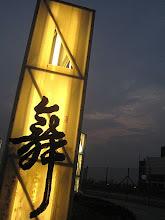Coloured transparency
Canada Transport Minister Lawrence Cannon hided, no, actually he was trying to lied to the public of his expenses!
Goverment's expenses comes from citizens. Citizens have the rights to know where their money goes. The Canada Goverment should give a good transparency of the expenses to the public. Indeed, do the goverment give us a totally transparency or a coloured transparency of expenses, which is show only partly of the expenses to the public?
A couple days ago, the Federal Labour Minister Jean-Pierre Blackburn tried to hide the expenses for his travelling trips to Quebec. I found this article and Mr.Blackburn defended that he could not do job "by bicycle"! Nobody says he should do job by bicycle, that is definitely no problem for him to travel by flights. But isnt it ridiculous to show only 8 trips out of his 25 trips to the public and stated its cost as ZERO!? Mr.Blackburn actually treated the public as idiot, everybody knows there should be no free trips.
 The picture on the left is Mr. Blackburn while he is defending on the incident of hiding his expenses. His face expression showed that he actually thought his words is the best and most "reasonable" explanation. Is his words worth to be trusted? The way he hided his expenses proof that NO.
The picture on the left is Mr. Blackburn while he is defending on the incident of hiding his expenses. His face expression showed that he actually thought his words is the best and most "reasonable" explanation. Is his words worth to be trusted? The way he hided his expenses proof that NO.
The government has not enough transparency to the public and the taxpayers. Showing only part of the expenses and hiding the real expenses is actually a "coloured transparency", which do not let the public see clearly where their money goes.
Now, another conservative cabinet minister Mr.Cannon was discovered that he hided the real expenses of the trips again! It is the second time in a few days that, the ministers of the govenment used the taxpayers' money in an improper way. Although he defended that he did report the cost, he splited the cost to different department without stating clearly what the cost for. If Mr.Cannon was using the money in a proper way, why didnt him report all his expenses clearly in a same department instead of spliting it into different department? It should take him more time and effort to do such things. The only reason can explain this is that he was trying to hide his real epenses. Mr.Cannon tried to split the cost to different departments in order to disperse the checking from the public.
 *Is Mr.Cannon's explanation for his expenses trustable?
*Is Mr.Cannon's explanation for his expenses trustable?
Mr.Cannon was forced to show the details of his six missing under the request of the Canadian Press. He explained that he already reported those expenses on the website. The fact is he did not mention all the expenses in detail. I consider the way of Mr.Cannon hiding his expenses is a kind of corruption, because he used the govenment's money for his private expense. I did not mean Mr.Cannon surely used the expenses improperly, but if he use it properly, there is no reason for him to hide the expenses.
The government should set up a department to check how the ministers use and report their expenses. Since the income of the govenment is from the taxpayers, the public absolutely have the right to know where the expenses are used. The public pay tax to the government for giving a good service to the public and society. I did not mean the ministers should do their jobs "by bicycle", but I also did not mean they could hide the expenses to the public in order to have a really good flight, like aboarding a sleek Citation C-550 executive jet for the ministers own benefit and enjoyment. If they do so, they should report CLEARLY to the public. And not reporting part of the expenses and hiding part of them at the same time, pretends that there is a transparency between the government and public, but actually is a "coloured transperancy".
